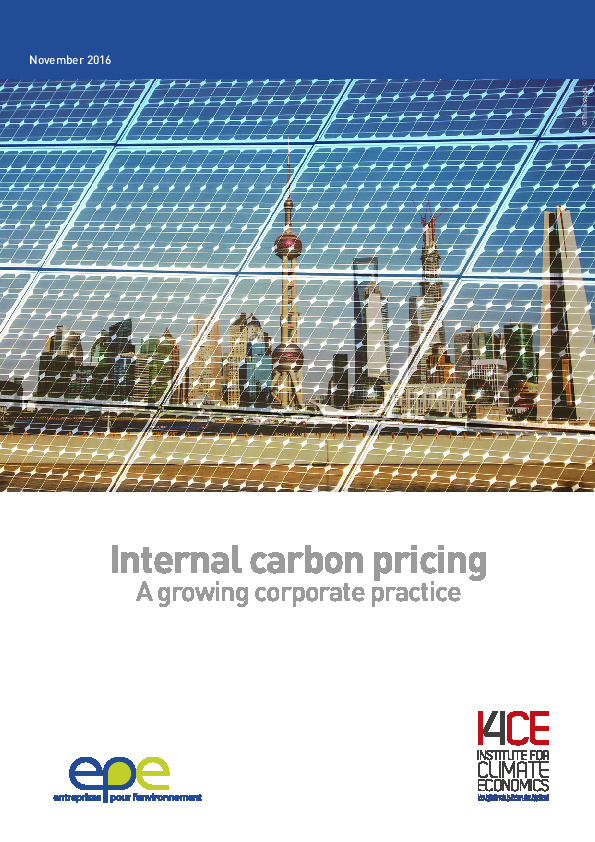Internal carbon pricing – A growing corporate practice
For the Global Climate Chance Summit, I4CE and EpE – Entreprises pour l’environnement, have come together to release a guidebook on internal carbon pricing.
The publication outlines the concept of an internal carbon price, describes its various forms and also identifies benefits of adopting this policy.
The publication is based on the experiences of companies that are members of EpE and aims to respond to the questions which may arise for companies seeking to put a price on carbon internally.
Meet EPE and I4CE from 1pm to 3 pm – Agora 1 at the Climate Chance summit on the 27th of September to learn more on this topic.

